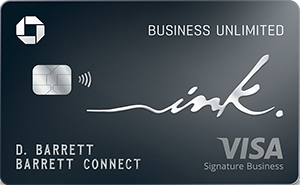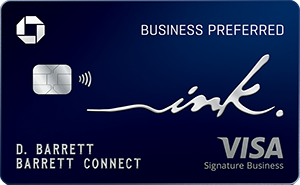This Is How Much Capital You Really Need to Start Your Small Business
KEY POINTS
- Starting a business can cost as little as a few hundred dollars, or hundreds of thousands of dollars.
- Survey data from Shopify found that the average online small business owner spends $40,000 in their first year of operations.
- McDonald's requires people to have at least $500,000 to be considered to open a franchise.
There's not an easy answer for how much money it takes to start a small business. If you want to start a simple home-based business, you might only need a few hundred dollars. If you want to open a brick-and-mortar retail storefront or restaurant, you're likely going to need tens of thousands of dollars of upfront capital to pay for rent, inventory, employee expenses, and more.
Let's look at a few examples of average start-up capital needed to start a small business -- and how you can improve your chances of success.
Home-based professional services business: $1,000 (or less)
If you have professional skills that can be used to start a business as a consultant or freelancer, congratulations: you have a chance to start one of the lowest-cost businesses of all. If you start a professional services business, you might need up to $1,000 of actual cash to get your business off the ground.
A few examples of start-up costs for a home-based professional services business include:
- Website builder
- Business cards
- Forming a Limited Liability Company (LLC) or other legal business entity
- Advertising and marketing expenses
The biggest "cost" of starting a business as a freelancer or consultant is mostly the value of your time. You'll need to burn the midnight oil (or wake up early) to introduce yourself to new clients, promote your services on social media, and otherwise get known by the people who can hire you. But being a freelancer or consultant is one of the best ways to start a business without a big checking account balance.
Online store: $40,000
You don't always need a lot of money to start an online store. But if you want to make a serious impact with attractive inventory that people want to buy, and with powerful search engine marketing that can drive traffic to your site, you need to spend some cash.
Business Credit Card Comparison
Consider these business credit cards that offer a convenient and efficient way to separate personal and business expenses, simplifying accounting and tax reporting.
Additionally, business cards can provide valuable perks such as rewards points, cashback, and expense tracking tools, enhancing financial management and the potential to help save money in the long run.
| Offer | Our Rating | Welcome Offer | Rewards Program | APR |
|---|---|---|---|---|

Ink Business Unlimited® Credit Card
Apply Now for Ink Business Unlimited® Credit Card
On Chase's Secure Website. |
Rating image, 4.50 out of 5 stars.
4.50/5
Our ratings are based on a 5 star scale.
5 stars equals Best.
4 stars equals Excellent.
3 stars equals Good.
2 stars equals Fair.
1 star equals Poor.
We want your money to work harder for you. Which is why our ratings are biased toward offers that deliver versatility while cutting out-of-pocket costs.
|
Earn $750 bonus cash back Earn $750 bonus cash back after you spend $6,000 on purchases in the first 3 months from account opening. | Earn unlimited 1.5% cash back on every purchase Earn unlimited 1.5% cash back on every purchase made for your business |
Intro: 0% Intro APR on Purchases Purchases: 0% Intro APR on Purchases, 12 months Balance Transfers: N/A Regular: 18.49% - 24.49% Variable |

Ink Business Preferred® Credit Card
Apply Now for Ink Business Preferred® Credit Card
On Chase's Secure Website. |
Rating image, 4.50 out of 5 stars.
4.50/5
Our ratings are based on a 5 star scale.
5 stars equals Best.
4 stars equals Excellent.
3 stars equals Good.
2 stars equals Fair.
1 star equals Poor.
We want your money to work harder for you. Which is why our ratings are biased toward offers that deliver versatility while cutting out-of-pocket costs.
|
Earn 100,000 bonus points Earn 100,000 bonus points after you spend $8,000 on purchases in the first 3 months from account opening. | Earn 3 points per $1 in select business categories Earn 3 points per $1 on the first $150,000 spent in combined purchases on travel, shipping purchases, Internet, cable and phone services, advertising purchases made with social media sites and search engines each account anniversary year. Earn 1 point per $1 on all other purchases-with no limit to the amount you can earn. |
Intro: N/A Purchases: N/A Balance Transfers: N/A Regular: 21.24%-26.24% Variable |
A survey from Shopify found that the average online small business owner spends about $40,000 in the first year. Ideally, you can start making sales and earning revenue quickly so you can cover those costs. But $40,000 is a reasonable average estimate for the cost of starting an online small business.
Franchise: $20,000-$50,000
Sometimes the fastest way to start a business is to buy into an existing business by opening a franchise. When you buy a franchise, you get the support and marketing muscle of a larger brand that can help you make money. The classic phrase to explain the advantage of franchising is that it feels like "being in business for yourself, but not by yourself."
Opening a franchise is not free, of course. You have to pay a franchise fee to the larger company as a one-time investment to get your business started. According to the International Franchise Professionals Group, the average cost of a franchise fee can range from $20,000-$50,000 -- and that's just the franchise fee, not counting other start-up costs you might need, like real estate and inventory.
Some of the most famous franchise brands, like McDonald's, require a lot more money than that. For example, McDonald's requires its new franchisees to have at least $500,000 of non-borrowed personal resources before you can be considered to open a franchise.
But if you believe in the company's brand, if you can work within established systems and processes, and if you can hustle to find new customers and build your franchise's presence in your local market, becoming a franchisee can be a cost-effective way to become an entrepreneur.
Food truck: $40,000-$150,000
Food trucks have become a big trend in America's culinary scene, and unlike the costs of starting a larger restaurant at a fixed location, they can offer a lower-price way to get into the food business. Data from Square shows that average food truck start-up costs might range from $40,000 to $150,000.
One advantage of opening a food truck is that you're not dependent on one location; you can go where the people are. And food trucks are made for social media -- you can build an audience with photogenic, memorable food, and a colorful truck that's fun to pose with for selfies. If you can find a winning concept with food that people love to eat, you might find that opening a food truck is a cost-effective business idea.
Restaurant: $175,500-$750,500
Opening a restaurant is many people's dream start-up idea: What could be more fun than creating a unique hospitality environment, where people can gather for delicious food and happy memories? But although restaurants can be cool and glamorous, they're not cheap.
A survey from RestaurantOwner.com found that the average start-up costs for a restaurant range from $175,500 to $750,500. Restaurants have lots of costs: food, other inventory, real estate leases, construction, employee wages, utilities, license and permit fees, and more. That all adds up to a median start-up cost per seat of $3,586 -- or $14,344 for a four-seat restaurant table. Starting a restaurant can be risky, and the profits are not often huge: the RestaurantOwner.com survey found that the typical restaurant's (median) profit margin was 5.5%.
Bottom line
Starting a business doesn't have to be expensive, but it's important to know just how much it can cost. Many entrepreneurs fund their startups with credit cards or personal funds. Until you're ready to apply for a small business loan, you might need to "bootstrap" your business in this way.
Alert: our top-rated cash back card now has 0% intro APR until 2025
This credit card is not just good – it’s so exceptional that our experts use it personally. It features a lengthy 0% intro APR period, a cash back rate of up to 5%, and all somehow for no annual fee! Click here to read our full review for free and apply in just 2 minutes.
Our Research Expert
We're firm believers in the Golden Rule, which is why editorial opinions are ours alone and have not been previously reviewed, approved, or endorsed by included advertisers. The Ascent, a Motley Fool service, does not cover all offers on the market. The Ascent has a dedicated team of editors and analysts focused on personal finance, and they follow the same set of publishing standards and editorial integrity while maintaining professional separation from the analysts and editors on other Motley Fool brands.
Related Articles
View All Articles